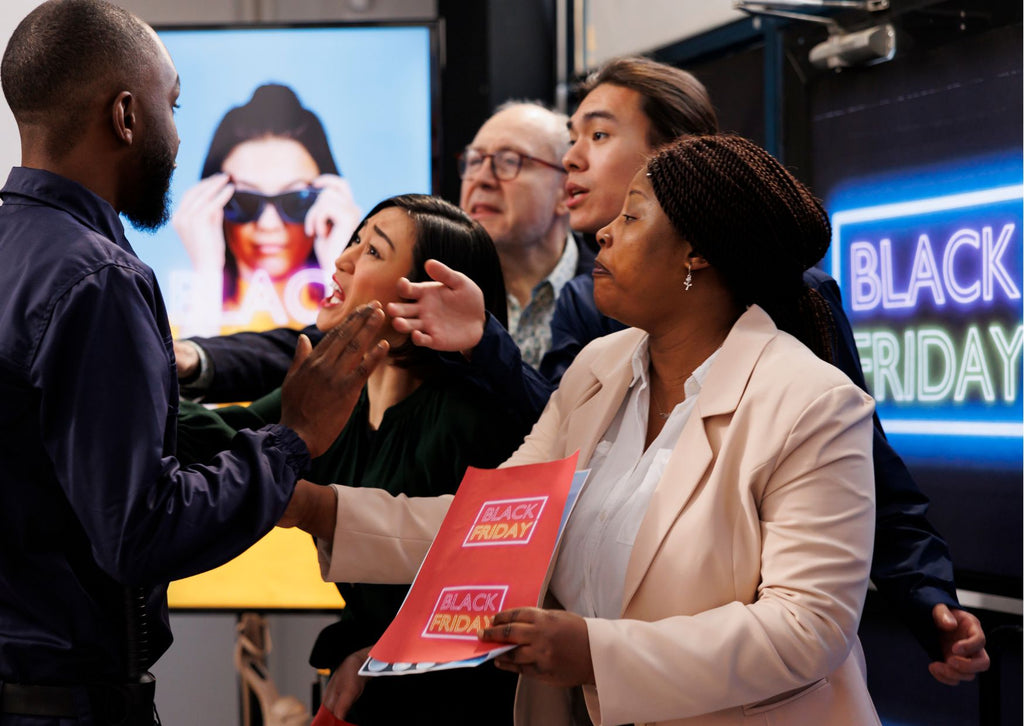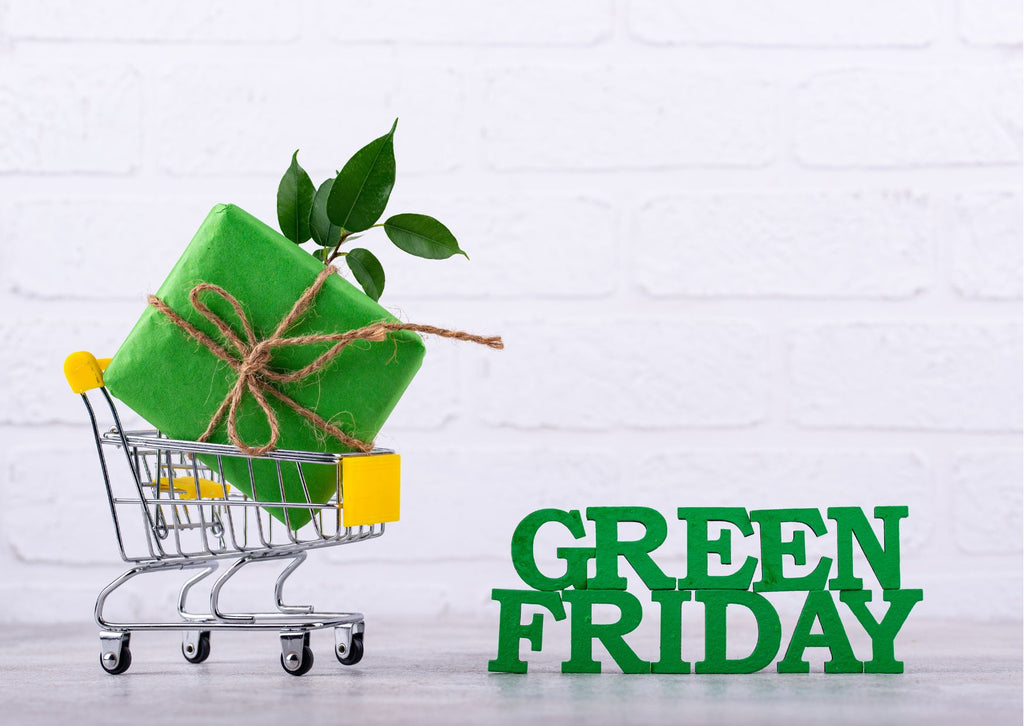This Black Friday we’re doing things differently here at My Little Green Wardrobe.
Evolving from Green Friday in previous years, we’re turning our back on the traditional concept of Black Friday and instead changing it to ‘Take Back Friday’.
As an ethical brand, the overconsumption associated with Black Friday deals is not something we wish to endorse, and slashing prices that are a fair reflection of the high quality materials and the fair labour used to produce our sustainable baby and children’s clothing feels like a race to the bottom.
So, this year we’re encouraging customers to send back previous items in exchange for £5 off their next purchase.
A good deal for customers and a great deal for the planet.
WHY IS BLACK FRIDAY BAD?

Black Friday is bad for a number of reasons, but chief among them is the excessive consumerism it promotes.
This is one of the main issues fuelling climate change, and Black Friday is one of the key vehicles driving this annually.
Here are some of the main concerns around Black Friday:
1. Consumerism Overdrive
Black Friday often spurs impulsive buying, contributing to overconsumption.
In 2022, Black Friday and Cyber Monday online sales in the UK reached a staggering £12.3 billion, according to Mintel.
This represents nearly 12% of the UK’s ecommerce sales for the entire year.
The urgency of Black Friday limited-time offers often leads to impulse shopping, with many Black Friday purchases being unplanned.
This frenzy of excessive consumerism has huge consequences on the planet’s resources.
2. Environmental Impact
Black Friday's impact on the environment is substantial. The surge in production and delivery of goods contributes to excessive waste.
A 2021 report by price comparison website Money.co.uk estimated that deliveries from Black Friday sales were estimated to release over 429,000 metric tons of greenhouse gas emissions.
That's the equivalent of 435 return flights from London to New York.
And it’s not only the mountain of plastic waste and packaging associated with shipping Black Friday purchases, but the items themselves.
Research by the Green Alliance suggests 80% of Black Friday purchases are sent to landfill or incinerated within a year of being bought, after zero or only one use.
3. Social and Worker Issues
The intense demand for discounts can strain both supply chain and retail employees.
According to a study by Oxfam, many workers that supply UK supermarkets face low wages and ‘brutal’ working conditions. According to the charity, the “supermarkets’ relentless pursuit of profits continues to fuel poverty and human rights abuses in their supply chains”.
The pressure during Black Friday exacerbates these challenges further - with those in the supply chain standing to lose the most.
4. Shift Away from Small Businesses
The large retailers' deep discounts overshadow smaller businesses around the Black Friday promotional period. This is a problem for a few reasons.
When we shop locally, for every £1 spent with a small or medium-sized business around 63p remains in the local economy, according to local government research, per keepingitlocal.co.uk. This compares with around 40p with larger firms.
Money spent with small businesses not only goes back into local economies, but with 60% of SMEs fearing closure in the next 12 months, you will also be supporting jobs and livelihoods.
The allure of Black Friday deals divert consumer spending away from these communities to huge multinationals, which may not always be transparent about their tax liabilities, and other responsibilities.
ALTERNATIVE BLACK FRIDAY: WHY ‘TAKE BACK FRIDAY’?

This Black Friday it’s expected that around a third of purchases will be clothing, and with the fashion industry estimated to make up somewhere between 2 to 8% of global greenhouse emissions, it is crucial we find ways to curb this consumption and reduce the footprint of our clothing.
The biggest impact of an item of clothing is in upstream manufacturing and production. This part of a garment’s lifecycle represents upwards of 70% of its emissions.
The best way, therefore, to reduce the overall impact of our clothing is to get more wears out of individual items, before they are discarded and sent to landfill or for incineration.
If we can keep clothing in circulation for longer, the lower the impact of the garment per wear.
That’s where our kids’ clothing take back scheme helps!
- Explore Re:Wardrobe - Our Premium Second Hand Kids Clothing Store
- Fashion Revolution's Orsola de Castro on How to Invest in our Planet
The clothes we sell are of the highest quality and it’s our ambition that most things should last at least three children - or even more if it’s outerwear.
Our Black Friday alternative, ‘Take Back Friday’ is the permanent launch of our kids’ clothes take back scheme and the My Little Green Re:Wardrobe - our quality kids second hand shop.
HOW DOES OUR CLOTHES TAKE BACK SCHEME WORK?

Simply pack up your things and send back your old clothing to us, in exchange for money off your next purchase.
You’ll receive £5 to use on new items or instead check out our quality, pre-vetted, kids’ second hand clothing store, the Re:Wardrobe.
For more info, visit our Re:Wardrobe page..
WHAT IS GREEN FRIDAY?

Plenty of smaller businesses shun Black Friday opting for a more eco-friendly promotion known as green Friday, eco-friendly Black Friday, alternative Black Friday or ethical Black Friday.
Instead of discounting products, some pledge donations to charities and non-profits as an alternative. Some may plant a tree, or sponsor part of a wildlife area as a result of Green Friday sales.
And others may boycott Black Friday altogether.
The hope is that customers will use this opportunity to vote with their wallets to do good in the world.
It’s my opinion that business is one of the strongest forces we have to do good and change the world.
With the rise of ethical consumerism and shoppers who are more sustainably-minded, I'm hoping that Take Back Friday will chime with those who want to support these businesses that are doing good, rather than simply feed a system that is geared towards profiteering, greed and exploitation.
Happy Take Back Friday!
With love,
Lucy
X



 Author: Lucy Todd
Author: Lucy Todd